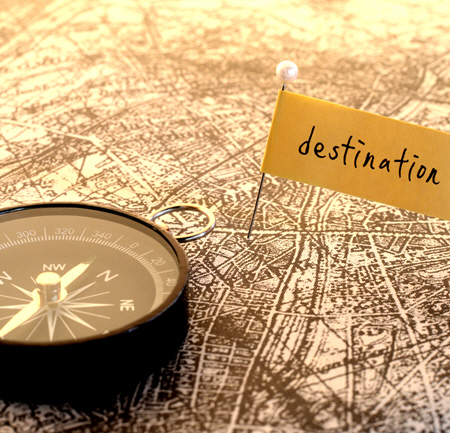 Imagine this…
Imagine this…
You and your partner arrive in a new city for a weekend adventure.
The weather is beautiful. You’ve heard there are some great local restaurants, and you’re looking forward to some downtime.
You are staying at a lovely apartment overlooking the manicured grounds at a local university.
It’s just the two of you. Finally, some time alone.
But there is a catch…
The apartment you are staying in has been wired with cameras and microphones to record all your interactions to be viewed later by a panel of psychologists.
Sounds a bit intrusive, to say the least.
What do you suppose you could learn about the fate of your relationship under this unusual setup? It turns out that you can learn a lot.
The approach has validation.
This experiment was originally conducted in 1986 when John Gottman put his first couple under the microscope at The University of Washington’s “Love Lab.”
For nearly 40 years, thousands of couples have been studied and have provided data for Gottman’s research. Using groundbreaking mathematical models integrating nonlinear differential equations, Gottman was able to predict and chart the future course of a relationship reliably. This same research identified nine components that work together to create and sustain healthy relationships. Gottman used these nine components to develop a structure for his therapeutic approach to help couples achieve their goals.
 The object is to create a positive course for the future.
The object is to create a positive course for the future.
The goals of the Gottman method are to minimize conflict; increase positive verbal communication; and increase intimacy, respect, and affection. Goals also include creating a heightened sense of empathy and understanding of one another.
When partners can express warmth and understanding, engage in healthy communication, and show each other they genuinely care, this empowers the relationship, and it grows stronger. Love and empathy tend to be reciprocal. A partner who feels loved, valued, and understood is more likely to provide those same qualities in return.
To achieve these goals, Gottman developed interventions based on his data that allow couples to make positive adjustments in their relationship and change the course of their life together.
Welcome to the world of Gottman Couples Therapy.
I use many components of Gottman Couples Therapy in my work with couples.
The interventions are straightforward, easy to understand, and couples can begin using them immediately upon leaving a session.
Gottman Couples Therapy provides a format for gaining insight into one’s emotional self as well as one’s partner and the relationship.
Start by gaining insight…
In the first session, we will meet for 90 minutes.
I will conduct an oral interview and gather lots of information on your history as a couple as well as what is working in your relationship and what needs some attention.
Assessment follows…
Between the first and second therapy sessions, clients will individually complete an online assessment.
The assessment is thorough and takes most people between 60 and 90 minutes to complete.
 Understanding individual concerns…
Understanding individual concerns…
The second session will be conducted in two parts. I will meet with each partner individually for 45 minutes.
We will review your family of origin, any concerns you may have around therapy, and your expectations.
It is also an opportunity to address areas of concern from the assessment.
Feedback and goal-setting…
In the third session we meet, I will provide detailed feedback on the relationship based on oral history, individual interviews, and assessment results.
We will establish an estimated timeline for therapy and collaborate on goals for treatment. We will decide which areas the couple would like to work on, which may include conflict management, intimacy, improving their friendship, or repairing past resentment or hurt feelings.
New skills lead to permanent change…
Over the remaining weeks, couples will learn skills and practice interventions designed to address their specific goals. Often this begins with rebuilding respect and admiration, fondness, and friendship.
Enhance Friendship. Couples will work to enhance and maintain the friendship aspect of their relationship by building a culture of fondness and admiration.
This all starts with understanding communication and increased awareness of one’s own and each other’s feelings and needs. Partners learn to see each other more positively, build affection, romance, passion, and restore the couple’s sense of adventure, fun, and humor.
Modify Conflict. This process includes creative ways of managing conflict that create intimacy and understanding.
Couples will learn to eliminate the four predictors of divorce (contempt, criticism, stonewalling, and defensiveness) from their relationship and replace them with their antidotes. This helps lessen conflict and quarrels as couples learn to move from gridlock on perpetual issues to understanding the deeper meaning and the existential nature of the conflict.
Create Shared Meaning. Couples will construct a sense of shared meaning in their relationship through the intentional creation of formal and informal rituals of emotional connection. They will create a shared purpose in building a life together.
 Each couple is unique.
Each couple is unique.
The number of remaining sessions and amount of time required for therapy are specific to each couple’s needs but typically range from 6 to 12 sessions.
Upon completion of treatment, couples are encouraged to return after 3 months, 6 months, and 1 year for a therapeutic “check-in” session.
It’s time to invest in your relationship and in your future.
The decision to go to Couples Therapy can be a difficult one. The process can be intense… but it can also be amazing.
Life is too short to spend it in a relationship that isn’t working.
If you are committed to improving your relationship, call me today to learn more about how I can help you and your partner create a more fulfilling life together. I offer a free 20-minute phone consultation.
Let’s chat and see if the time is right to get started: (601) 498-8263.

